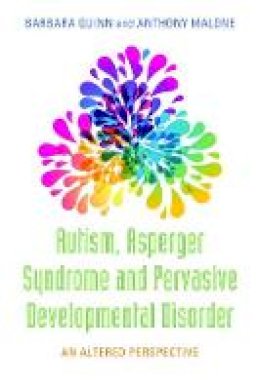
Autism, Asperger Syndrome and Pervasive Developmental Disorder: An Altered Perspective
Barbara H. Quinn
Autism Spectrum Disorder, or ASD, is the umbrella term used to describe a whole family of related conditions. Within this group, there is a subgroup of conditions known as PDD (NOS) - Pervasive Developmental Disorder (not otherwise specified) - which do not quite meet the diagnostic criteria of Autism or Asperger Syndrome.
Written specifically for parents, this fully-updated second edition sets out what it means for a child to be diagnosed with ASD, PDD (NOS), autism or Asperger Syndrome, and explains where parents should go from there. The authors describe the signs and symptoms of each condition, what a diagnosis means, how a child fits into the diagnostic terminology, and what the diagnostic procedures involve. Associated disorders such as Rett Syndrome, Childhood Disintegrative Disorder and OCD are reviewed, and the authors describe the various treatments, therapies, and educational approaches available. The book also includes new information on medication and on the evolving concept of diagnosis, as well as a list of frequently asked questions and new interviews with parents of children on the autism spectrum.
Accessible, informative, and supportive, this book is an essential guide for parents of children with an autism spectrum disorder.
Product Details
About Barbara H. Quinn
Reviews for Autism, Asperger Syndrome and Pervasive Developmental Disorder: An Altered Perspective
ForeWord Reviews I would recommend it to parents of newly diagnosed children with autism, PDD, or Asperger's. It is easy to read and touches on all the key subjects to help a parent understand the basics of what they are up against. Parents will learn a lot from the personal accounts of other children with ASD and will also get a good idea of what they may want to pursue next in their journey.
Help! S-O-S for Parents The authors use easy to understand language to attempt to explain what may cause autism, pointing out the complex interplay between genetics and brain functioning and the possibility of an "epidemic" of autism, pointing out that may not be the case... each chapter is highlighting that particular concept the chapter is discussing, to give the reader an idea of just how complex and variable ASD really is.
Newsletter of the Autism Society of Michigan
